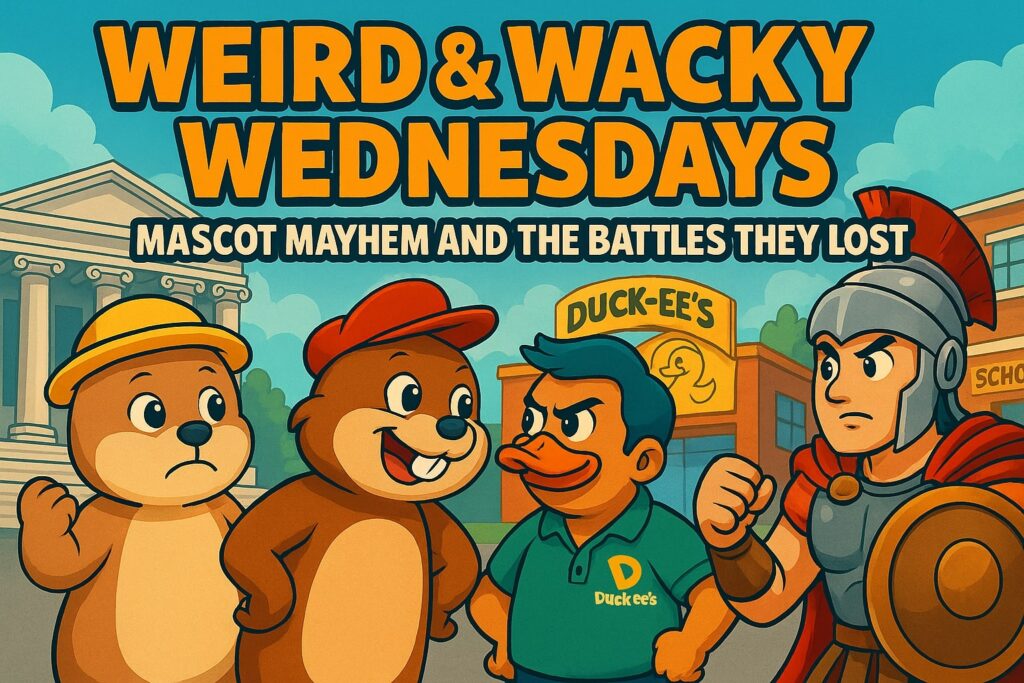This week on Weird and Wacky Wednesdays: Mascot Mayhem and the Battles They Lost
Welcome to another edition of Weird and Wacky Wednesdays. Mascots are supposed to be fun. They entertain crowds, pose for photos, and sell merchandise. But sometimes they end up in the middle of courtroom drama. This week we look at three cases where a mascot’s copyright or trademark owner tried to take down a competitor and failed.
Chiitan the Otter Outsmarts a City
In Japan, the city of Susaki had an official mascot named Shinjo-kun, a cartoon otter wearing a yellow hat. The city worked with a private company to create Chiitan, an unofficial otter character that quickly became an internet sensation. Chiitan’s videos were more chaotic and far less wholesome than Shinjo-kun’s, which led the city to revoke Chiitan’s role as tourism ambassador and accuse the creators of infringing on Shinjo-kun’s rights. The creators fought back in court and won. The court found that Chiitan was a distinct character, despite the otter theme, and the city’s claims failed. Chiitan remains free to cause mayhem.
Beaver Bites Back in Texas
Buc-ee’s, the massive Texas convenience store chain, is famous for its smiling beaver mascot. In Missouri, a small drive-thru store opened under the name Duck-ee’s with a cartoon duck logo. Buc-ee’s sued for trademark infringement, arguing that the name and animal mascot were too similar. The court was not convinced. Ducks and beavers may both have beady eyes and buckteeth, but they are not the same animal, and the Missouri store was not copying Buc-ee’s style in a way that confused customers. The beaver lost this fight and Duck-ee’s kept its name.
The Spartan That Stayed
A Long Island school district replaced its Native American mascot with a Spartan warrior to comply with new state rules. Almost immediately, the change drew criticism from a local NAACP leader who sued, claiming the Spartan mascot was a symbol of white supremacy and offensive to women and people of color. While the case drew headlines, the court did not order the school to drop the mascot. The Spartan survived the challenge and remains the school’s symbol.
These cases show that even when a mascot is valuable and well-known, owning it does not guarantee victory in court. Sometimes the law sees enough distinction between two characters to allow them to coexist. Other times, the complaint is simply not strong enough to force a change. Mascots may look like harmless fun, but their battles can be serious, costly, and occasionally hilarious.
